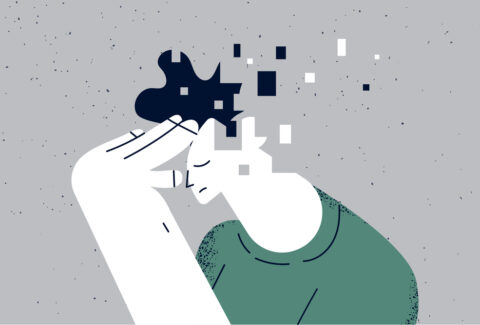Emotion-Focused Therapy: Embracing the Central Role of Emotions in Healing
Emotions are at the core of human experience. They guide our decisions, shape our relationships, and influence how we perceive and respond to the world around us. Yet, emotions are often misunderstood, suppressed, or dismissed, leading to unresolved pain and maladaptive patterns. Emotion-Focused Therapy (EFT)[1] addresses this by placing emotions at the center of the therapeutic process, unlocking their potential as powerful tools for healing and growth.
The Philosophy of Emotion-Focused Therapy
Developed by Dr. Leslie Greenberg, EFT is grounded in the belief that emotions are not problems to be eliminated but essential guides to understanding ourselves and our needs.[2] Unlike traditional approaches that may prioritize cognitive or behavioral change, EFT focuses on helping clients experience, process, and transform their emotions.
Why Emotions Matter
- Emotions as Signals: Emotions provide information about our environment, relationships, and unmet needs.[3] For example, anger might signal a boundary violation, while sadness might indicate a loss that requires mourning.
- The Adaptive Nature of Emotions: When processed effectively, emotions can lead to adaptive actions and resolutions.[4] However, when avoided or suppressed, they often manifest as anxiety, depression, or relational difficulties.
- The Role of Maladaptive Emotions: Past experiences, particularly those involving trauma or neglect, can create maladaptive emotional responses, such as shame, fear, or self-blame.[5] EFT helps individuals access these emotions and transform them into healthier patterns.
The Central Role of Emotions in Healing
EFT posits that emotional healing occurs through a three-step process:
- Emotional Awareness: Many individuals are disconnected from their emotions, either because of societal norms (e.g., “Don’t cry; be strong”) or personal defenses. EFT helps clients become aware of their emotions in a safe and nonjudgmental space.[6]
- Emotional Regulation: Experiencing emotions can be overwhelming, especially when they are tied to unresolved pain. EFT equips clients with tools to regulate their emotions, such as grounding techniques and self-soothing practices, fostering a sense of safety.
- Emotional Transformation: The heart of EFT lies in transforming maladaptive emotions into adaptive ones. For instance, a client’s deep sense of shame might evolve into self-compassion, or unresolved grief might give way to acceptance and renewal.
Core Components of EFT
Experiential Focus:
EFT emphasizes in-the-moment experiences, encouraging clients to engage deeply with their emotions during sessions. This experiential process creates opportunities for insight and change.
- Attachment-Based Framework: EFT draws from attachment theory, recognizing that secure relationships are vital for emotional well-being. It helps clients explore and repair attachment ruptures that contribute to emotional distress.
- Emotion Coaching: Therapists in EFT act as emotion coaches, helping clients navigate their emotional landscapes and providing guidance in identifying, expressing, and transforming emotions.[7]
- Transforming Emotional Schemes: EFT identifies and alters entrenched emotional patterns (or emotional schemes) that perpetuate distress. This process involves accessing core emotions and replacing unhelpful responses with adaptive alternatives.
Applications of Emotion-Focused Therapy
EFT has proven effective across a variety of therapeutic settings and populations:
- Individual Therapy: Helping clients address depression, anxiety, trauma, and unresolved grief by reconnecting with their emotions.
- Couples Therapy: Strengthening emotional bonds and improving communication by addressing attachment insecurities and relational patterns.[8]
- Trauma Recovery: Assisting clients in processing and transforming trauma-related emotions such as fear, shame, and anger into resilience and self-compassion.
Research and Evidence Supporting EFT
EFT is backed by a robust body of research demonstrating its efficacy:
- Depression: Studies show that EFT significantly reduces symptoms of depression by helping clients process core emotions like sadness and helplessness.[9]
- Trauma: EFT provides a framework for processing traumatic emotions, leading to reduced post-traumatic stress symptoms and improved emotional regulation.[10]
- Couples Therapy: EFT has been shown to improve relationship satisfaction, with up to 75% of couples reporting significant improvement in relational distress.
Why EFT Matters
In a world that often prioritizes logic over emotion, EFT offers a revolutionary perspective: that emotions are not obstacles to overcome but pathways to healing. By embracing the central role of emotions, EFT empowers individuals to understand themselves more deeply, connect more authentically with others, and create lasting change in their lives.
Conclusion
Emotion-focused therapy is more than a therapeutic modality—it is a call to reconnect with the essence of what makes us human: our emotions. By placing emotions at the heart of the healing process, EFT helps individuals transform pain into growth, disconnection into intimacy, and despair into hope.
Whether addressing individual struggles or strengthening relationships, EFT stands as a beacon of hope for anyone seeking a more fulfilling emotional life.Are You a Clinician Looking to Help Your Clients Master Emotional Difficulties Through EFT?
Join us for our Virtual Conference on Emotion-Focused Therapy (EFT) on Wednesday, December 13th, from 9:00 AM to 1:00 PM (EST)!This interactive event is designed to equip clinicians with the knowledge and tools to make the learning and mastery of EFT accessible to their clients who struggle with emotional challenges.
Why Attend?
- Deepen your understanding of Emotion-Focused Therapy.
- Gain practical strategies to help clients transform emotional difficulties into personal growth.
- Earn continuing education credits while enhancing your therapeutic skills.
Details:
Date: December 13, 2024
Time: 9:00 AM – 1:00 PM EST
Format: Virtual
[1] Greenberg, Leslie S. “Emotion–focused therapy.” Clinical Psychology & Psychotherapy: An International Journal of Theory & Practice 11.1 (2004): 3-16.
[2] Greenberg, Leslie S. “Emotion-focused therapy: A clinical synthesis.” Focus 8.1 (2010): 32-42.
[3] Rojo, Ana. “The role of emotions.” The handbook of translation and cognition (2017): 369-385.
[4] Izard, Carroll E. “Emotional intelligence or adaptive emotions?.” (2001): 249.
[5] Kochenderfer‐Ladd, Becky. “Peer victimization: The role of emotions in adaptive and maladaptive coping.” Social Development 13.3 (2004): 329-349.
[6] Gençoğlu, Cem, and Müge Yılmaz. “The effect of emotional awareness education, based on emotion focused therapy, on young adults’ levels of optimism.” The Journal of Happiness & Well-Being 2.1 (2014): 51-62.
[7] Halamová, Júlia, and Martin Kanovský. “Emotion-focused training for emotion coaching–an intervention to reduce self-criticism.” Human Affairs 29.1 (2019): 20-31.
[8] Wiebe, Stephanie A., and Susan M. Johnson. “A review of the research in emotionally focused therapy for couples.” Family Process 55.3 (2016): 390-407.
[9] Salgado, João, Carla Cunha, and Marina Monteiro. “Emotion-focused therapy for depression.” (2019).
[10] Mlotek, Ashley E., and Sandra C. Paivio. “Emotion-focused therapy for complex trauma.” Person-Centered & Experiential Psychotherapies 16.3 (2017): 198-214.







